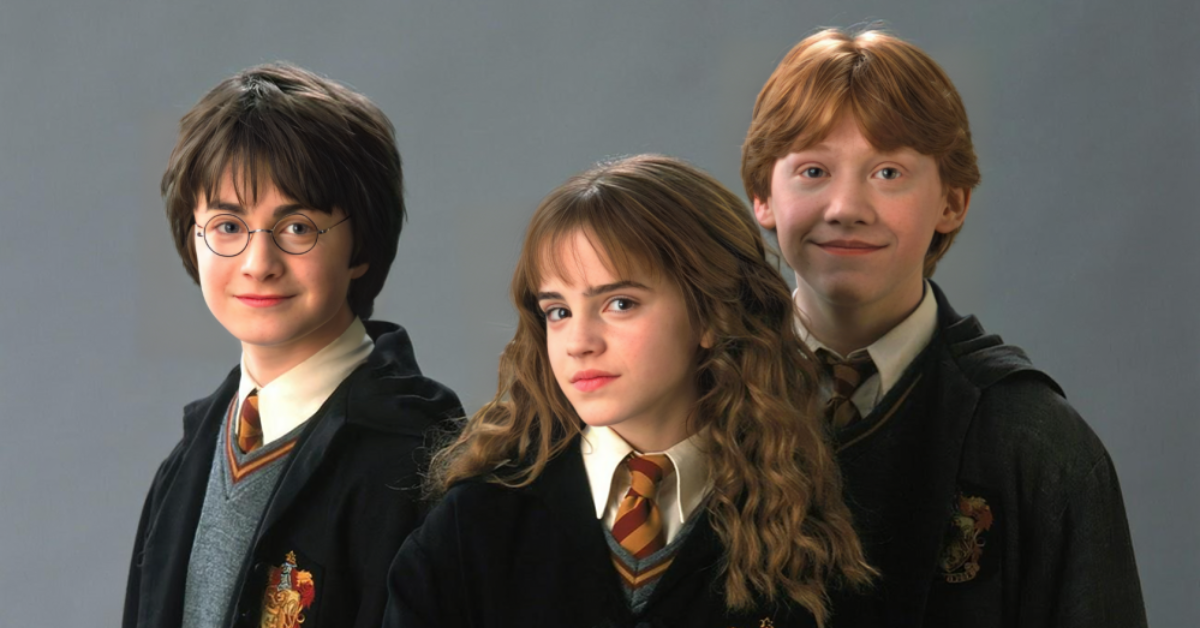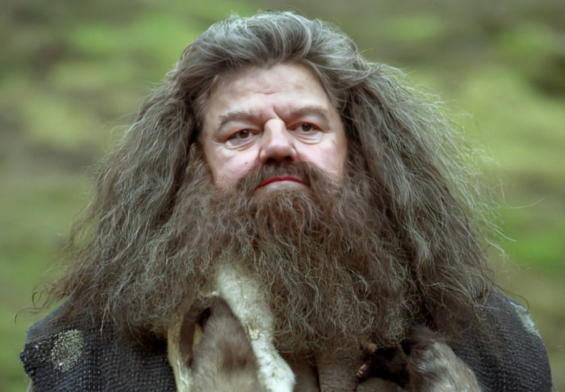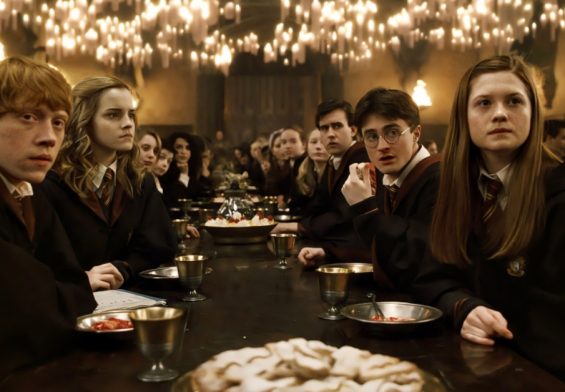
To say that the Harry Potter books and films ended a long time ago would be a severe understatement. As of writing this, it’s been a whopping 27 years since the Philosopher’s Stone was first published, and 13 years since the last Harry Potter film hit the silver screen.
While both mediums sufficiently developed the characters and story, reading the last few pages of the final book left me longing for more. We got so much, yet it still feels like we didn’t get enough.
Which is why I’ve scanned through extended publications, interviews, and more in search of answers. Today we’re going to be exploring 7 things that were revealed about our favorite Harry Potter characters after the books and films ended.
Before we get started, I just want to make one distinction. This article will be exploring things that happened to the Wizarding World and characters after the story ends, i.e., what happens to them next, and not necessarily just things we learn about the Harry Potter story after the series ended.
There are plenty of facts about the series that are revealed later, like the fact that McGonagall was married, and that there are actually 11 major wizarding schools worldwide, but I’ll be saving that sort of stuff for another article.
Recommended for You:- Was Lucius About to End Harry’s Life in the Chamber?
- Why Lucius Malfoy Never Faced Azkaban After Two Wizard Wars?
- Dumbledore LIED: Harry Survived Avada Kedavra
- Why do expelled students lose their wands but criminals don’t?
1. No More Dementors
Dementors are the terrifying guards of Azkaban. Ten-foot-tall, cloaked beings with dark grey scabby skin, these malevolent creatures symbolize the embodiment of unhappiness and despair.
As guards of the infamous Wizarding Prison, they are responsible for ensuring that all of the darkest witches and wizards inside do not escape.
But the use of Azkaban and Dementors as a whole always seemed flawed. Azkaban is a truly inhospitable environment, and the criminals sent there are effectively just there to suffer and wallow in their own self-pity. In the Goblet of Fire, Sirius Black reveals a little bit about what happens to the prisoners inside:
He wasn’t the only one who died, said Sirius bitterly. Most go mad in there, and plenty stop eating in the end. They lose the will to live. You could always tell when a death was coming, because the dementors could sense it. They got excited.
Given that most people either die or go insane, I think it’s safe to say that going there IS a death sentence in a way. It’s certainly no rehabilitation facility. For all of these reasons and more, Azkaban changed quite significantly after the fall of Voldemort and the reformation of the Ministry of Magic.
The most significant of these changes was removing Dementors as prison guards. Kingsley would see to it that Azkaban will no longer use Dementors. The use of Dementors was always a mark of the underlying corruption of the Ministry.
2. Dudley Settled Their Differences
Amidst the ongoing war with Voldemort and his Death Eaters, very little is revealed about the Dursleys after they pack up and head off. But there are a few clues in the form of a segment from the book and a deleted scene from the film that suggest there may be a future for Harry and Dudley.
The scene depicts a moment of redemption for Dudley, who, in an effort to make things right with Harry, shakes his hand just before they depart. Harry’s bully, the boy who tormented him for years, finally made an effort to set things straight, and this single act did wonders for their relationship in the years to come.
It’s later revealed by J.K. Rowling that, despite Dudley’s years of abuse towards Harry, they were eventually on Christmas card terms, sometimes visiting each other during the holidays.
While quite hard to believe, Dudley did eventually develop into a decent man, very much unlike the tyrannous force of nature that he embodied in his youth. Dudley even eventually got married and had a family of his own, raising two muggle children.
Harry and Dudley would still see each other enough to be on Christmas card terms, but they would visit more out of a sense of duty and sit in silence so that their children could see their cousins.
3. Umbridge’s Fate
Umbridge is arguably the worst character in the entire Harry Potter story, and she first makes her mark when she infiltrates Hogwarts and makes life at the school a living hell.
That is until she’s tricked into traveling to the Forbidden Forest by Harry and Hermione, only to be met with a horde of angry centaurs who carry her off. After this, she’s saved by Dumbledore and sacked from her headmistress position after it’s revealed that Voldemort had in fact returned.
Amazingly, however, Umbridge still found herself with a job after leaving Hogwarts. In fact, the Ministry accepted her back in her previous role of the senior undersecretary to the Minister of Magic. Despite a brief appearance at Dumbledore’s funeral, the next we hear of Umbridge is in 1997 following Voldemort’s takeover of the Ministry.
In addition to her primary position of undersecretary, Umbridge also became head of the Muggle-Born Registration Commission, where she conducted trials that were effectively designed to prosecute muggleborns.
Umbridge doesn’t appear much more in the story after this, as there are bigger problems in the wizarding world—Lord Voldemort. However, with Voldemort’s eventual downfall, the Ministry once again came under the control of normal witches and wizards, expunging all of Voldemort’s followers from positions of power.
The Ministry of Magic essentially underwent a reformation, led by a new Minister for Magic. Fully aware of the type of person that Umbridge was, and the crimes she’d committed during Voldemort’s regime, the new Minister had Umbridge arrested, tried, convicted, and given a life sentence to the island fortress of Azkaban, where she lived out the remainder of her days.
4. Hogwarts is Rebuilt
I know, I know, surprise surprise, the most famous wizarding school in the world is rebuilt. After Voldemort’s defeat, Hogwarts underwent extensive reconstruction to restore its once splendid halls.
The combined effort of dedicated wizards and the support of the wizarding community, this restoration project revived Hogwarts as the prestigious school of magic it once was, ready to welcome new generations of students.
At the helm was Minerva McGonagall, who ends up reprising her role and becomes full-time headmistress of the school.
5. They Didn’t Graduate
Well, not Harry and Ron anyway. The 1997-1998 year was an interesting one. It would have been Harry, Ron, and Hermione’s seventh year at the famed magical school Hogwarts, and I say would have been because the trio ended up spending their time elsewhere.
During this school year, the trio decided that they would instead spend their time hunting for Horcruxes.
However, what this also meant was that all three members of the trio missed out on their seventh year of education. So, did they graduate? Fortunately, Rowling answered this in an interview:
Interviewer: Oh, speaking of Ron and Hermione. Did they graduate from Hogwarts?
Rowling: Harry and Ron didn’t go back. Hermione did.
Interviewer: Ooh, oh my. Did you bet right? I mean, come on. Nobody’s going to think Hermione wouldn’t go back.
Rowling: Of course she’d go back. She has to get her nudes. Ron was really done with schooling. I think that it would be kind of tempting to go back just to mess around for a year and have a break, but he goes into the Auror department. Kingsley would have wanted Ron, Neville, Harry, and they would have all gone, and they would have all done the job. So that would have been rounding up the corrupt people who were doing a Lucius Malfoy, and trying to pretend that they really weren’t involved.
Despite not graduating, however, Harry and Ron went on to become successful in their respective careers. Following the second wizarding war’s conclusion, both Harry and Ron were offered positions as Aurors at the Ministry of Magic by the newly appointed Minister for Magic, Kingsley Shacklebolt.
Harry would go on to become head of the Auror office, and Ron eventually left the role to help his brother George out at Weasley’s Wizard Wheezes in Diagon Alley.
After going back to Hogwarts and graduating, Hermione achieved a lot. However, the peak of her success was undoubtedly becoming Minister for Magic.
6. Relationships
Throughout the series, we see various romances blossom; they have their highs and they have their lows, and then all of a sudden, the story just sort of ends.
We see some relationships become solidified during the story, like Remus and Tonks, but others are left a little open-ended. Fortunately, Rowling has since expanded on these relationships.
Some of the less obvious ones include:
- George Weasley and Angelina Johnson: George Weasley, after the loss of his twin brother Fred, eventually developed a relationship with Angelina Johnson. The unusual aspect of their relationship is that Angelina was actually Fred’s ex-girlfriend. They got married and had children, including a son named Fred II and a daughter named Roxanne.
- Luna Lovegood and Rolf Scamander: After the war, Luna Lovegood, who became a famous young Magizoologist, married Rolf Scamander, the grandson of the notable Magizoologist Newt Scamander. They went on to have two sons named Lorcan and Lysander.
- Neville Longbottom and Hannah Abbott: Neville Longbottom and Hannah Abbott, both members of Dumbledore’s Army, ended up together. They didn’t have children but lived together above the Leaky Cauldron, where Hannah worked as a landlady.
- Draco Malfoy and Astoria Greengrass: These two ended up having a son named Scorpius Malfoy. In a tragic turn of events, however, Astoria actually ended up dying quite young, falling victim to a blood-borne family curse. This left Draco a single father.
- Percy Weasley and Audrey: Percy Weasley, typically seen as the difficult Weasley, eventually found love with a witch named Audrey. They went on to have two daughters, Molly and Lucy.
7. Petunia’s Affection
Harry Potter’s relationship with his aunt Petunia Dursley involves a highly complex range of emotions. Petunia’s deep-seated jealousy and resentment towards her magical sister Lily, Harry’s mother, influence her treatment of Harry, leading to mistreatment and neglect.
However, there are glimpses of responsibility and moments that hint at buried emotions, showcasing a more human side to Petunia.
In the Cursed Child, it’s stated that Petunia actually died at some point before Harry’s son began attending Hogwarts. Shortly thereafter, Dudley returns a certain blanket to Harry, the same blanket that he was wrapped up in when he was left at number 4 Privet Drive.
This is the last thing I had for my mum. The only thing. I was given to the Dursleys wrapped in it.
I thought it had gone forever and then, when your great-aunt Petunia died, hidden amongst her possessions, surprisingly, Dudley found this and he kindly sent it on to me.
And ever since then, well, any time I’ve wanted luck, I found it and just tried to hold it.
This tells us that by the time Albus is in his third year, Petunia had actually died, which is tragic in a weird sort of way, given that she likely never revealed her true affection for Harry.
Despite her mistreatment of Harry for all those years, the fact that she kept the blanket in her possession shows a hidden sentimentality and possibly even a sense of regret.



